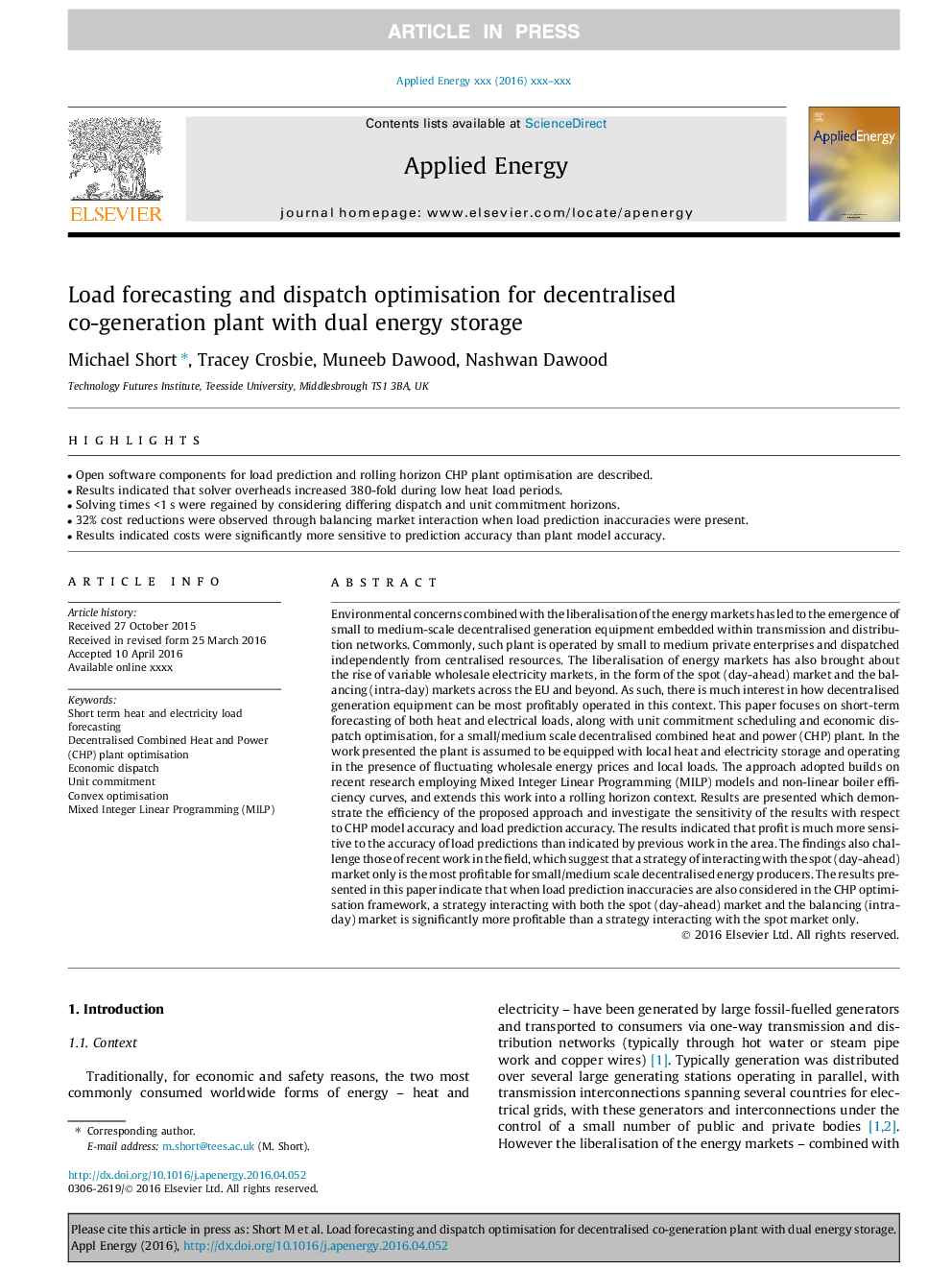| کد مقاله | کد نشریه | سال انتشار | مقاله انگلیسی | نسخه تمام متن |
|---|---|---|---|---|
| 4916801 | 1362735 | 2017 | 17 صفحه PDF | دانلود رایگان |
عنوان انگلیسی مقاله ISI
Load forecasting and dispatch optimisation for decentralised co-generation plant with dual energy storage
ترجمه فارسی عنوان
پیش بینی بار و بهینه سازی اعزام برای کارخانه های نسل کشی غیر متمرکز با ذخیره انرژی دوگانه
دانلود مقاله + سفارش ترجمه
دانلود مقاله ISI انگلیسی
رایگان برای ایرانیان
کلمات کلیدی
موضوعات مرتبط
مهندسی و علوم پایه
مهندسی انرژی
مهندسی انرژی و فناوری های برق
چکیده انگلیسی
Environmental concerns combined with the liberalisation of the energy markets has led to the emergence of small to medium-scale decentralised generation equipment embedded within transmission and distribution networks. Commonly, such plant is operated by small to medium private enterprises and dispatched independently from centralised resources. The liberalisation of energy markets has also brought about the rise of variable wholesale electricity markets, in the form of the spot (day-ahead) market and the balancing (intra-day) markets across the EU and beyond. As such, there is much interest in how decentralised generation equipment can be most profitably operated in this context. This paper focuses on short-term forecasting of both heat and electrical loads, along with unit commitment scheduling and economic dispatch optimisation, for a small/medium scale decentralised combined heat and power (CHP) plant. In the work presented the plant is assumed to be equipped with local heat and electricity storage and operating in the presence of fluctuating wholesale energy prices and local loads. The approach adopted builds on recent research employing Mixed Integer Linear Programming (MILP) models and non-linear boiler efficiency curves, and extends this work into a rolling horizon context. Results are presented which demonstrate the efficiency of the proposed approach and investigate the sensitivity of the results with respect to CHP model accuracy and load prediction accuracy. The results indicated that profit is much more sensitive to the accuracy of load predictions than indicated by previous work in the area. The findings also challenge those of recent work in the field, which suggest that a strategy of interacting with the spot (day-ahead) market only is the most profitable for small/medium scale decentralised energy producers. The results presented in this paper indicate that when load prediction inaccuracies are also considered in the CHP optimisation framework, a strategy interacting with both the spot (day-ahead) market and the balancing (intra-day) market is significantly more profitable than a strategy interacting with the spot market only.
ناشر
Database: Elsevier - ScienceDirect (ساینس دایرکت)
Journal: Applied Energy - Volume 186, Part 3, 15 January 2017, Pages 304-320
Journal: Applied Energy - Volume 186, Part 3, 15 January 2017, Pages 304-320
نویسندگان
Michael Short, Tracey Crosbie, Muneeb Dawood, Nashwan Dawood,
